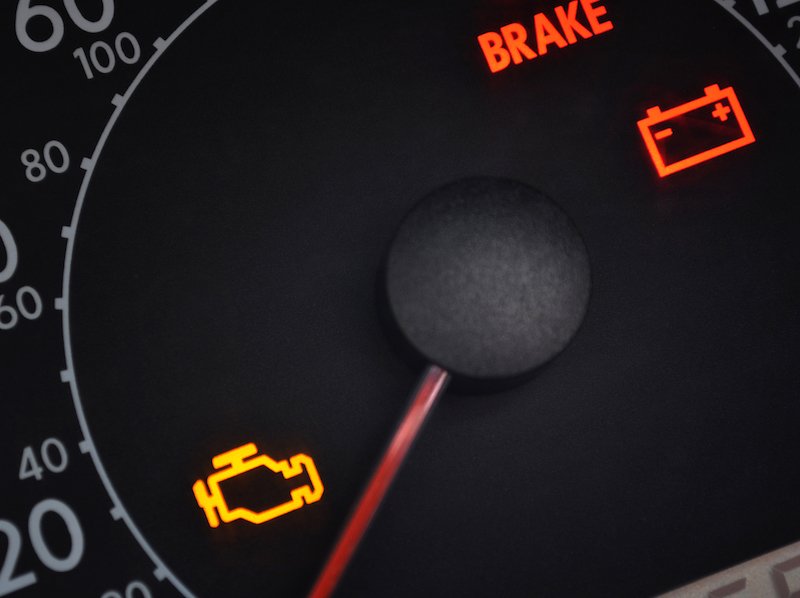Whenever your “Check Engine” or “Check” light comes on while you’re driving, you need to pay attention to it immediately. It doesn’t necessarily mean there’s something drastically wrong with your car, but that IS a possibility. One thing is for sure…nobody likes seeing this light on their dash.
- What Happened? The check engine light can come on for many reasons. For example, something as simple as a loose gas cap can trigger it. Other major problems, such as failed internal engine components, can turn on the light, as well. What it means is that a sensor has told the ECM (Engine Control Module) that something is out of specification and needs attention to prevent further damage. In order to really know what it is wrong with your car, it’s best to have a professional diagnose the issue.
- Why Did It Turn On? Your car’s computer will illuminate the warning whenever it detects a problem with the powertrain (engine, transmission, and other related components) that could increase tailpipe emissions, operating temperature, or any other “out of spec” event. Sometimes you will notice your engine performing quite differently when the light goes on; other times, you may notice no change at all. No matter how your vehicle performs, though, after that light goes on, it needs immediate attention to read the saved diagnostic codes.
- Why Is It Flashing? Both a solid and flashing engine check light indicates that a problem has been detected. However, a flashing engine check light indicates that it is a serious problem that requires your immediate attention. In some vehicles, instead of flashing, the light will change color from yellow to orange or red. If you see a flashing light, or if it changes color, it’s best to contact us soon as possible to prevent serious damage.
- What Are The Typical Reasons It Comes On? Mechanical Engine Issues – There’s a multitude of sensors monitoring your engine’s emissions, and anytime a component causes emission data to go out of specification, a light will be triggered. At first, your engine might run a little rough, but as time goes on this can become critical.
- Transmission Issues - Part of the powertrain, the transmission works closely with the engine to move power to the wheels. If the ECM detects a problem with power delivery that brings emissions out of spec, the light goes on.
- Other Modules and Sensors – There are a wide variety of body modules, electronic sensors and other devices that work together over a vast network to keep emissions in check. If one of them begins to fail, you’ll see it on the dash.
- Ignition System Issues – This is the SPARK that each cylinder needs to burn the fuel to produce power. If it fails to fire at the exact right moment, it will influence the emissions and trigger a light. If this is the source of a light, your vehicle will likely run rough, and continue to get worse.
- Air/Fuel Ratio – Anytime the computer can sense the improper air/fuel ratio, the light will go on. When this happens, you might notice a slight miss, or loss of performance.
What To Do When The Light Appears
You won’t know what the check engine light truly means until you have your car diagnosed by a professional. The warning could indicate something simple and harmless – or something serious that could cause further damage to your vehicle. If your engine light turns on, you may want to try tightening the gas cap, as firmly tightening the cap could solve the problem. If the light turns off, there’s no need to get your car serviced. If the light is still on, it could indicate a more serious problem with your vehicle. Don’t risk a serious breakdown that could cost you thousands of dollars. If your check engine light is on, have a professional diagnose and repair the issue right away.




